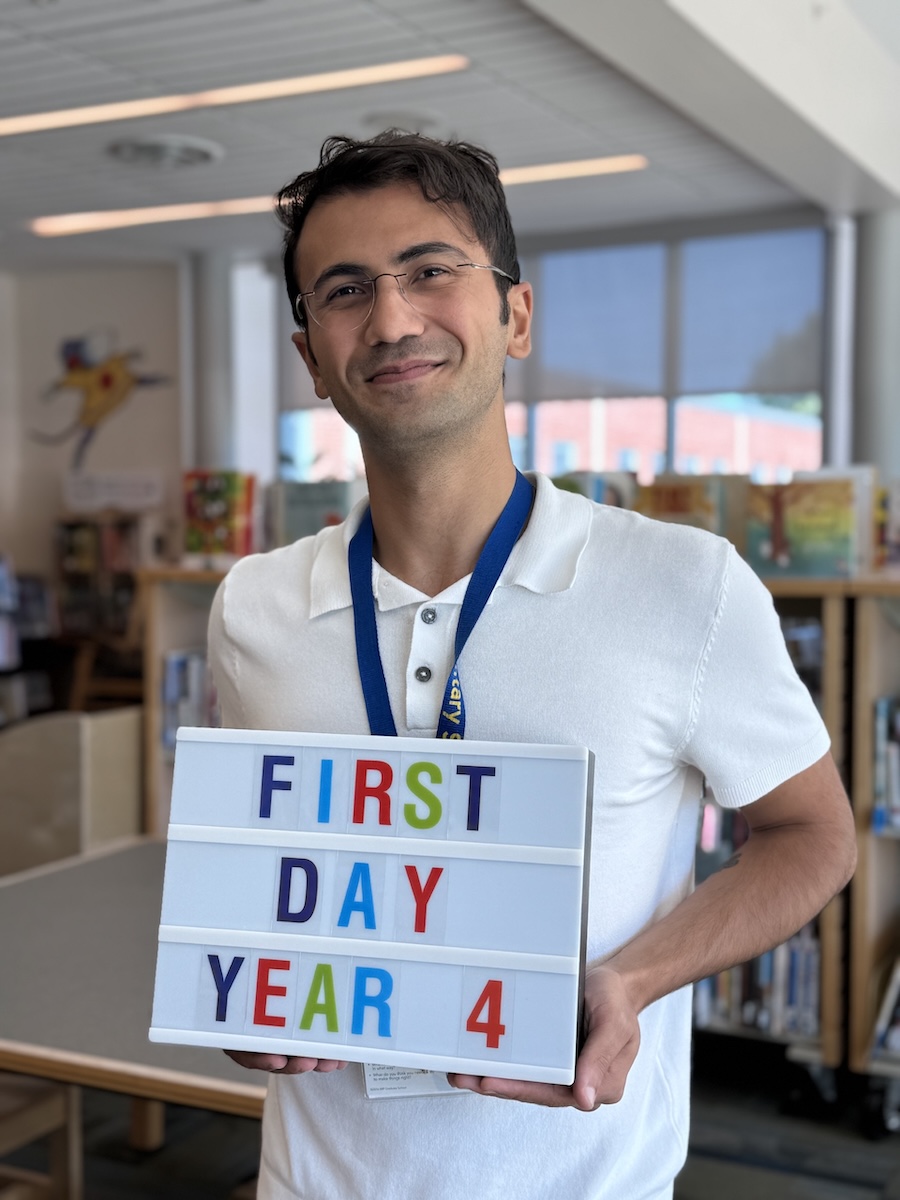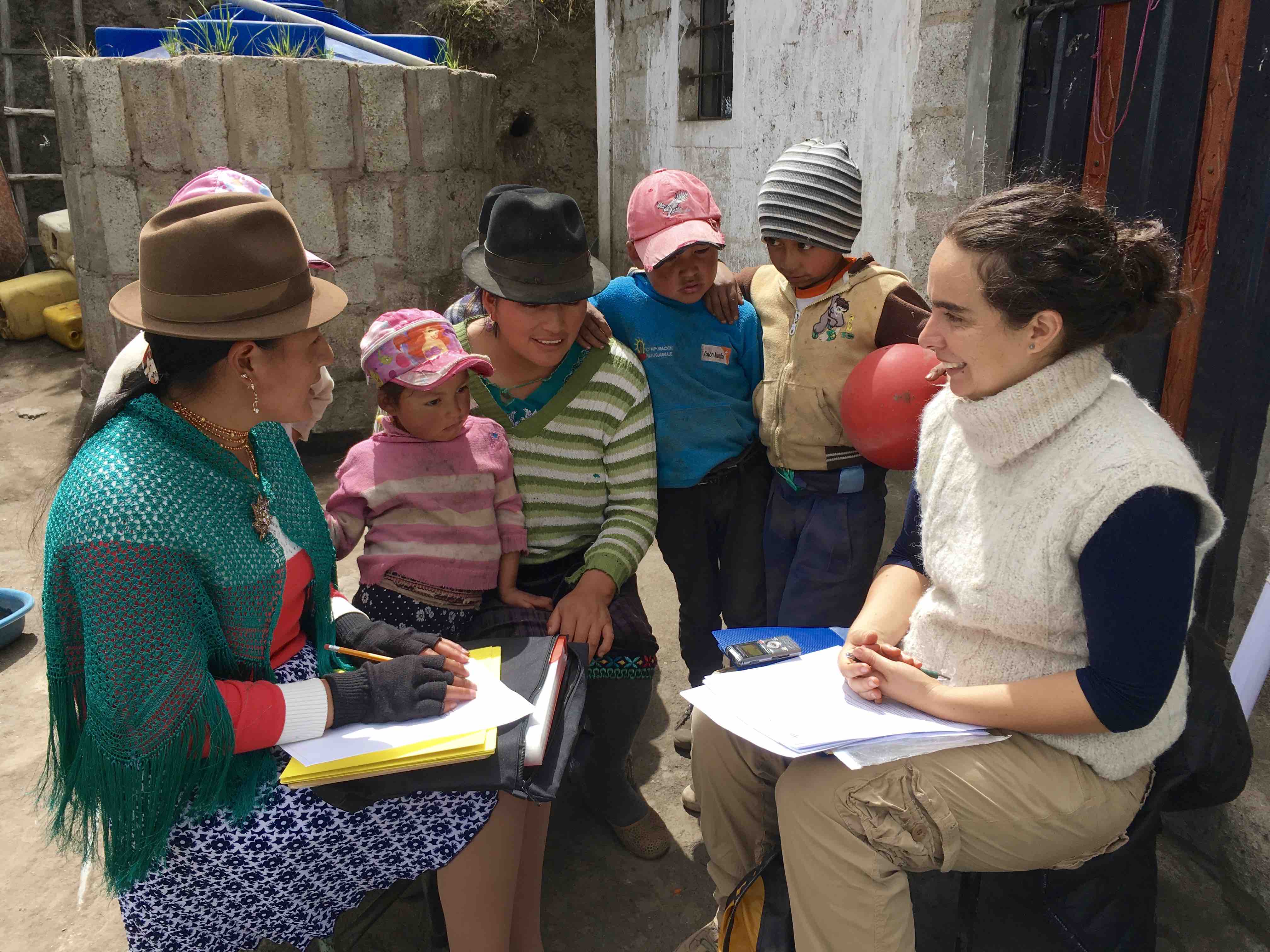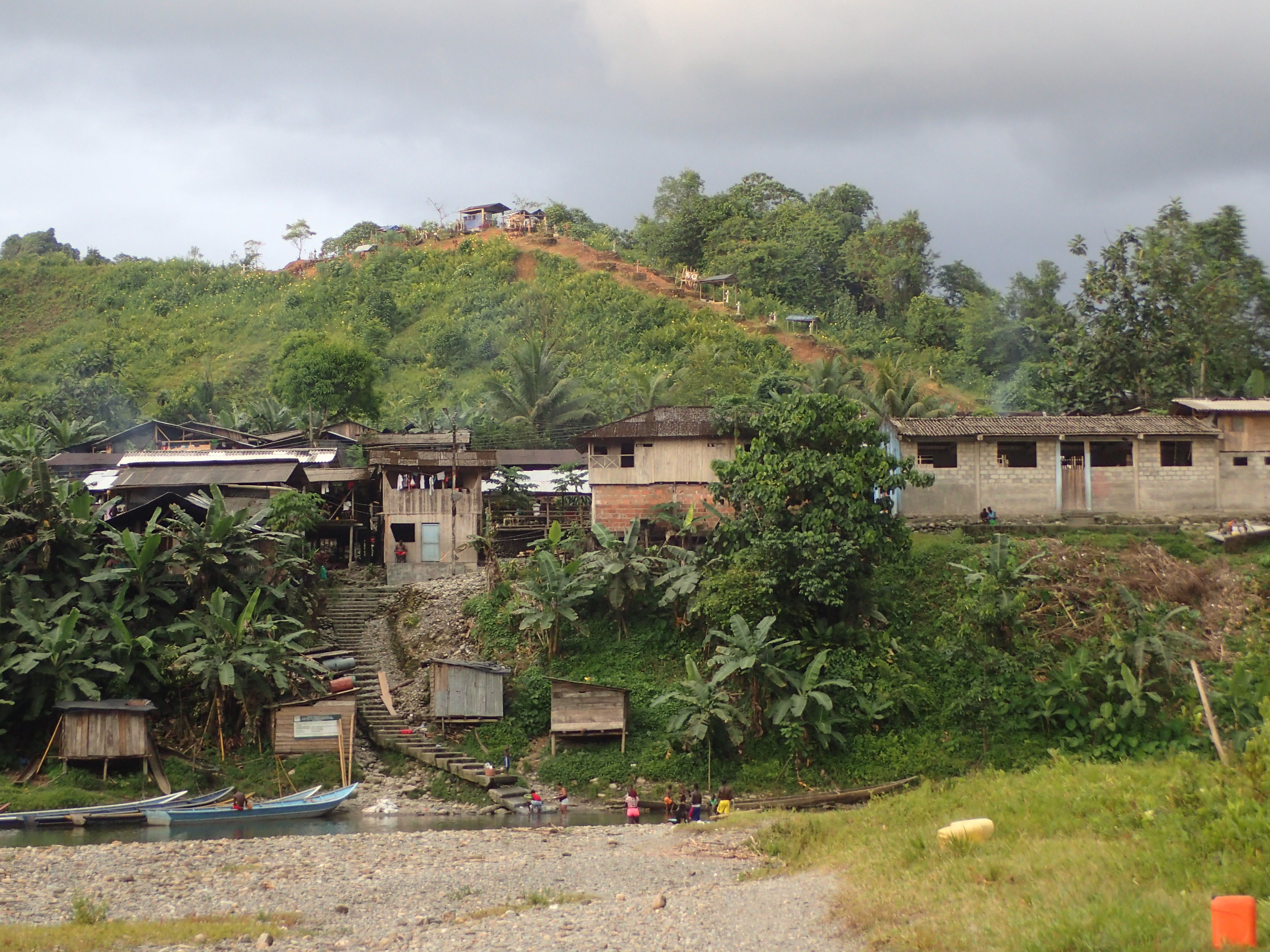What have you been up to since graduating from Bowdoin?
I graduated in 2021, in the middle of COVID, with a major in Hispanic studies and a coordinate major in education, which set me up to earn teaching certification. That following summer, I worked in a camp director position that was education-related, and by fall, I was substitute teaching in a number of districts, especially at Waynflete, a private school in Portland. In January, I enrolled in the Bowdoin Teacher Scholars program, which paired me with a school placement and gave me the chance to complete a three-month teaching internship, earn my hours, and receive my license to teach Spanish K–12.
After applying for teaching jobs, I accepted a position with Falmouth public schools, where I began teaching Spanish to students in grades 3–5. Although my training at Bowdoin was mostly with older students, I quickly found that the skills and experiences I gained there helped me transition to working with younger learners. I am now in my fourth year at Falmouth, and I have really enjoyed building a classroom community and developing as an educator.
Outside of the school year, I work with CIEE (Council on International Educational Exchange), a Portland-based organization that runs study abroad and cultural exchange programs. Through CIEE, I have led summer immersion trips abroad, including an Arabic language and culture program in Morocco and a Spanish immersion trip in Spain. These opportunities have been amazing for both travel and professional growth, especially working with older students in international settings. Looking ahead, I have started thinking about graduate school. In Maine, a master’s degree is not required to teach, but most districts will support continuing education, and I see it as something I will pursue in the future after gaining more classroom experience.
Why Latin American, Caribbean, and Latinx studies?
My interest in Hispanic studies and education really came together through courses and professors who made a lasting impact. During my junior year, I took Educating All Students with Doris Santoro, which was one of the most memorable classes I had at Bowdoin. The course focused on understanding disabilities, 504s, and IEPs, and included guest speakers as well as a shadowing experience with a Brunswick High School student from a Latinx background. That experience underscored the importance of meeting students where they are and helped me see teaching as a possible career.
At the same time, my Hispanic studies classes deepened my understanding of the language and its cultural significance. Courses with professors like Margaret Boyle and Sebastián Urli exposed me to Spanish poetry, literature, and culture, while classes on topics such as self-care and medical settings showed how language plays a crucial role in different contexts.
I also worked closely with Alison Riley Miller in the education department, where I learned about curriculum design and classroom practice. That training still shapes how I build my own lessons today. Although I was awarded a Fulbright to South Korea, I ultimately decided to decline it because I wanted to dive right into teaching through the Bowdoin Teacher Scholars program. That decision confirmed for me that education was the right path.
What advice would you give to current students or recent graduates interested in your field?
Do not feel pressure to rush into graduate school right away. There can be a lot of pressure because it seems like everyone is doing it, but funding and opportunities vary, and it is important to gain real classroom experience first. Spending a few years teaching before pursuing a master’s helps you understand your strengths, interests, and the realities of different school environments.
For example, I recently interviewed at a smaller, underfunded high school and saw firsthand the inequities that exist across districts. Experiences like that give you perspective, help you grow as an educator, and clarify what you want from a graduate program. Whether it is substitute teaching, working in camps, or taking on an international opportunity, I would encourage students to try out different settings in education before committing to grad school.


